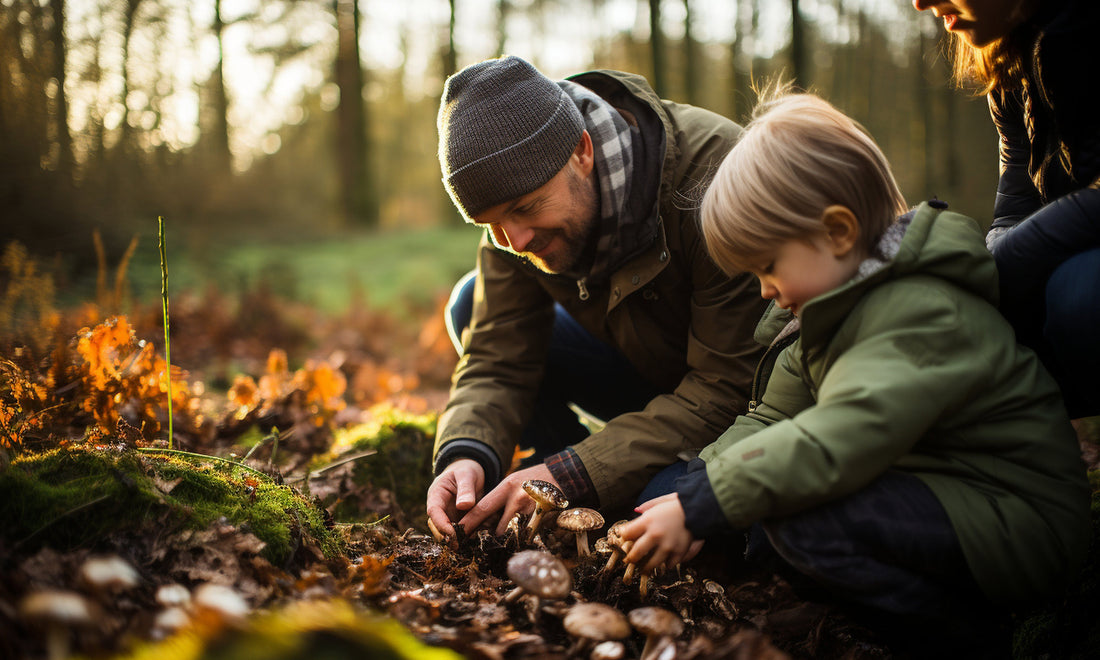
Mushrooms and the Environment: Sustainable Foraging and Cultivation Practices
Mushrooms are an integral part of our ecosystems, with numerous environmental and culinary benefits. From ancient traditions to modern gastronomy, these fungi have played a significant role in our diets and our planet's health. However, unsustainable harvesting and cultivation practices can harm both the environment and mushroom populations. In this blog post, we will explore the importance of sustainable mushroom foraging and cultivation practices and how they can contribute to a healthier planet.
The Role of Mushrooms in the Ecosystem
Mushrooms play a vital role in maintaining the balance of our ecosystems. They act as decomposers, breaking down organic matter, recycling nutrients, and enriching the soil. In forests, they form symbiotic relationships with trees, helping them absorb water and essential minerals. Mushrooms are also a food source for many animals, making them an integral part of the food chain.
Sustainable Foraging Practices
-
Know Your Mushrooms: The first rule of sustainable foraging is to know what you're picking. Mistaking toxic mushrooms for edible ones can lead to severe consequences. Invest time in learning about different mushroom species and their characteristics. Field guides and expert advice can be invaluable resources.
-
Harvest Responsibly: When foraging, take only what you need and leave the rest to ensure the survival of the mushroom population. Use a knife to cut the mushroom at the base, allowing the mycelium (the underground part of the fungus) to remain intact. This helps future growth.
-
Respect Local Regulations: Before foraging in a specific area, be sure to research and respect local regulations. Some regions have restrictions on mushroom harvesting to protect ecosystems and wildlife.
-
Avoid Overharvesting: If you discover a patch of mushrooms, consider only picking a portion and leaving some to disperse spores for future generations. Overharvesting can disrupt the natural balance.
Sustainable Cultivation Practices
-
Cultivate Native Species: When growing mushrooms at home, opt for native species whenever possible. Native mushrooms are well-suited to local environmental conditions and may have a positive impact on your local ecosystem.
-
Use Sustainable Substrates: The substrate, or growing medium, is crucial for mushroom cultivation. Opt for sustainable options like agricultural waste, sawdust, or straw rather than less eco-friendly choices. This reduces the environmental impact of mushroom farming.
-
Encourage Biodiversity: To enhance the sustainability of mushroom cultivation, consider creating an environment that promotes biodiversity. By integrating mushrooms into permaculture or agroforestry systems, you can develop a holistic and ecologically friendly approach.
-
Recycle and Reuse: Mushroom cultivation often involves materials like plastic bags, which can have a negative environmental impact. Consider recycling and reusing these materials to reduce waste and minimize your ecological footprint.
Benefits of Sustainable Mushroom Practices
-
Conservation of Biodiversity: Sustainable foraging and cultivation practices help conserve mushroom populations, which in turn contribute to the overall biodiversity of ecosystems.
-
Improved Soil Health: Wild mushrooms contribute to healthy soil by breaking down organic matter and recycling nutrients. In cultivation, they can enhance soil quality, making it more fertile and resilient.
-
Carbon Sequestration: Mushrooms play a role in carbon sequestration. By maintaining healthy forests and ecosystems, they help combat climate change.
-
Nutrient-Rich Food Source: Edible mushrooms are a nutritious and sustainable food source that can be easily integrated into our diets.
Conclusion
Mushrooms are fascinating organisms with a significant impact on our environment. By adopting sustainable foraging and cultivation practices, we can enjoy the many benefits of mushrooms while protecting the ecosystems they are a part of. Whether you're a forager or a home cultivator, your actions can contribute to a healthier planet and a more sustainable future for both us and the fungi that play such a vital role in our world.
